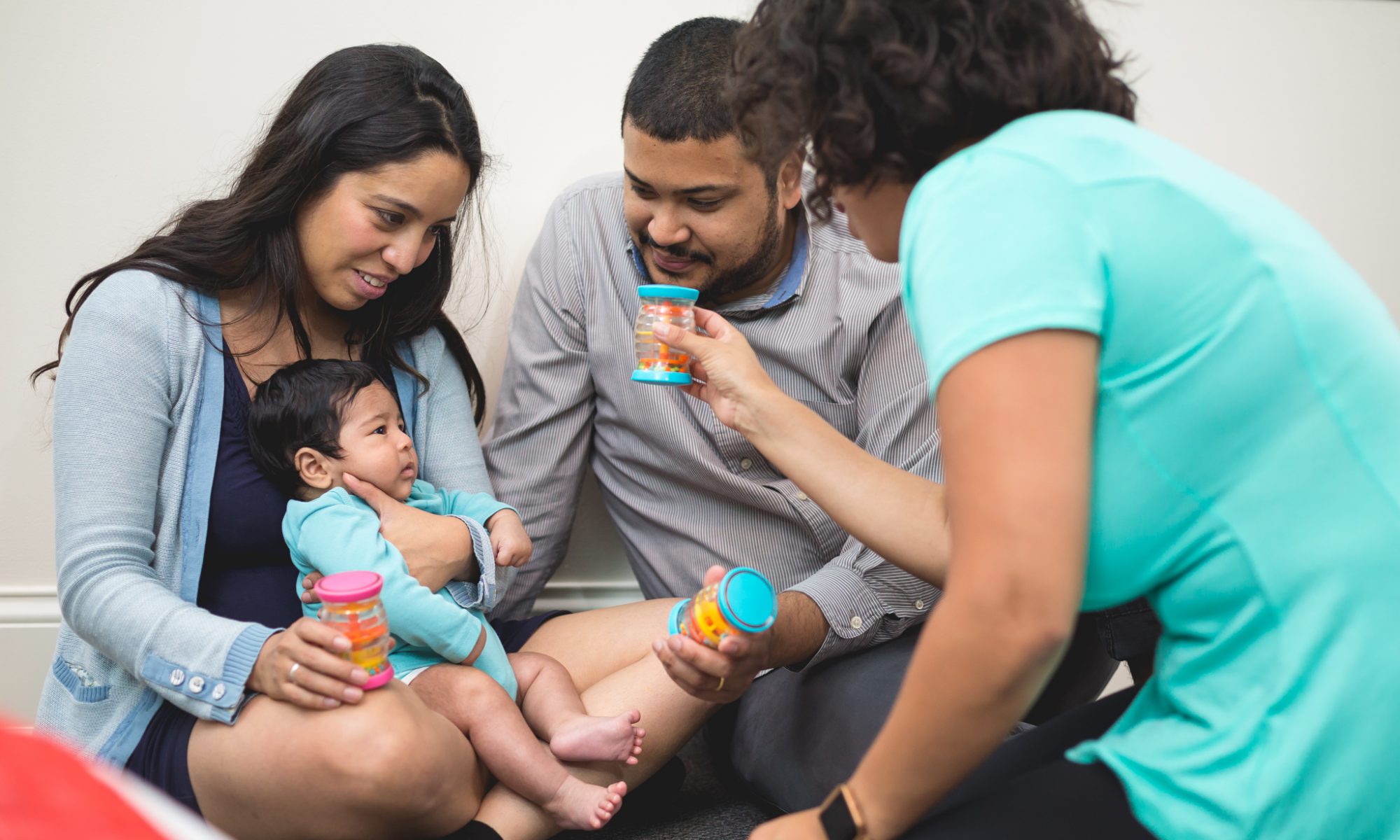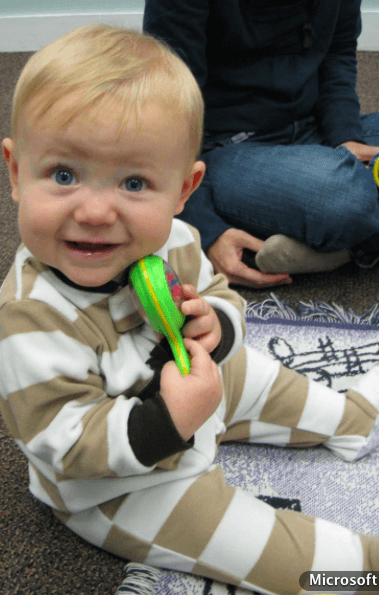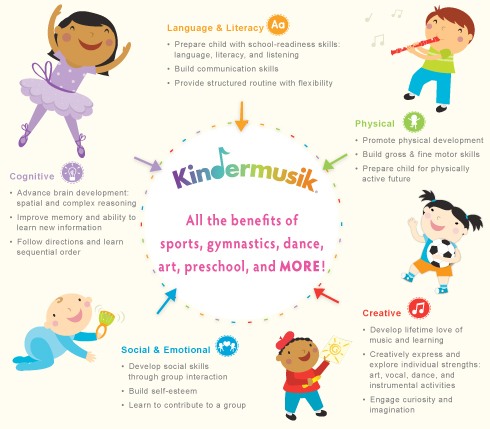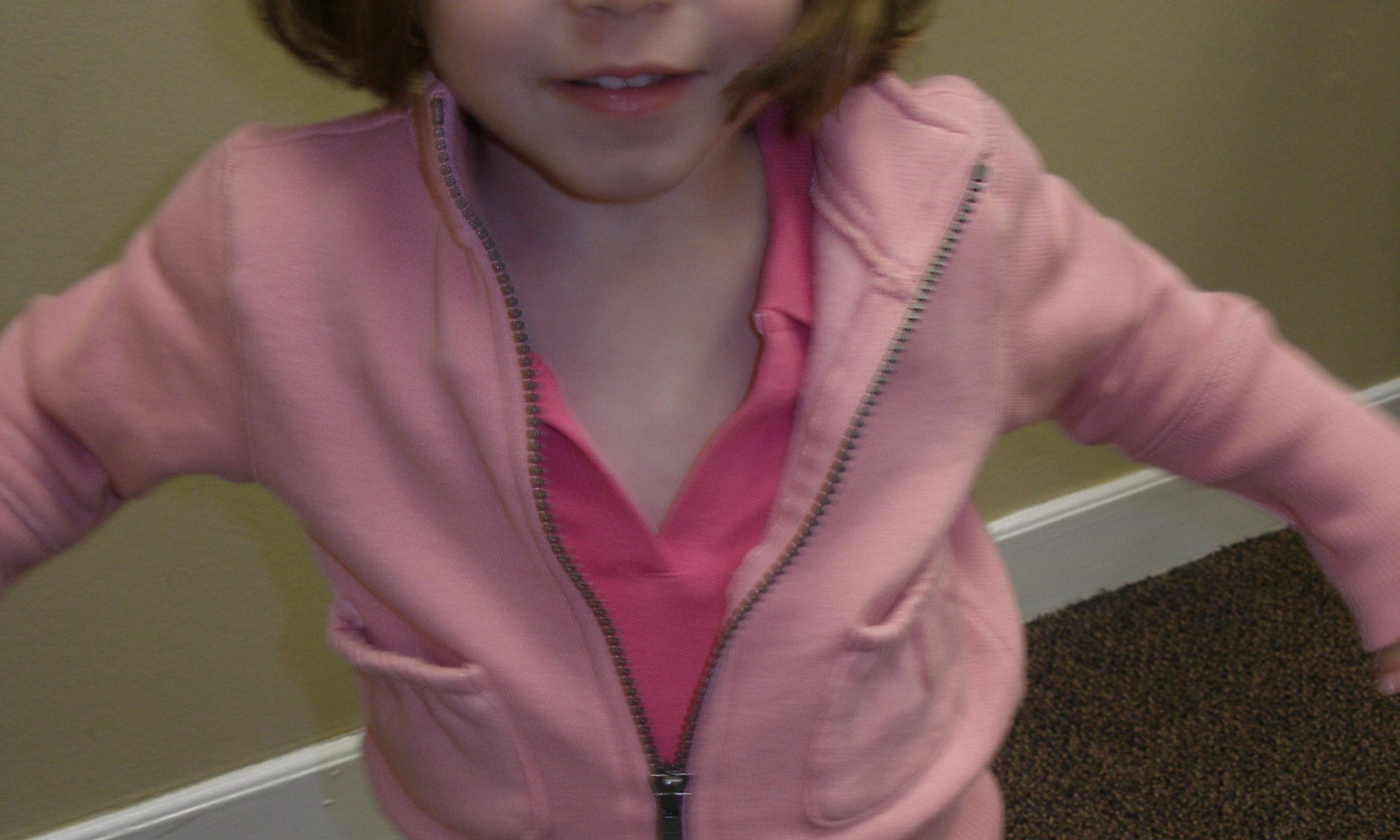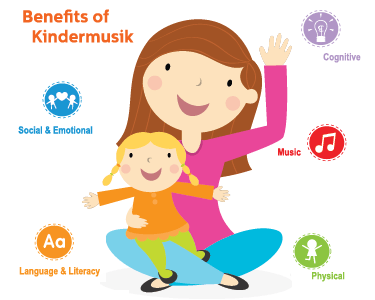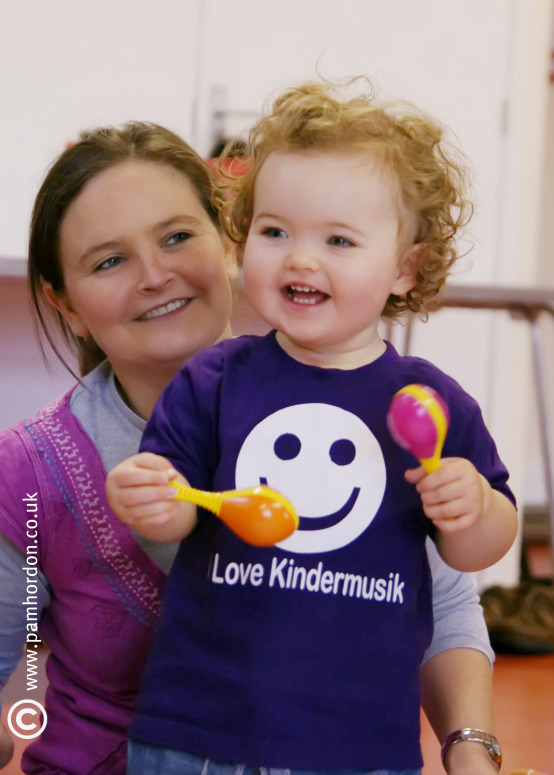Parents who seek information about what is best to do for their child—parents like you!—are relieved when an idea can be described as definitively true. It’s even better when that idea involves something that is easy and fun for children and caregivers to do together.
Where are the future scientists? In a music class for kids!

At first glance, music classes for kids might not seem like the best place to look for future scientists, technology experts, engineers, or mathematicians. Well, look again! New research indicates that an early childhood music class is exactly where we should look.
Researchers from Michigan State University recently published a study that found that 93 percent of STEM graduates (college students who majored in Science, Technology, Engineering, or Mathematics) reported musical training as a child compared to only 34 percent of the average adult. STEM graduates also showed an increased involvement in the visual arts, acting, dance, and creative writing.
Benefits of music for children continue through adulthood
“The most interesting finding was the importance of sustained participation in those activities,” said Rex LaMore, director of MSU’s Center for Community and Economic Development, in a press release. “If you started as a young child and continued in your adult years, you’re more likely to be an inventor as measured by the number of patents generated, businesses formed or articles published. And that was something we were surprised to discover.”
According to the research team, participation in the arts, such as music classes for kids, encourages “out-of-the-box thinking.” The STEM graduates reported using those skills they learned in music or art classes—such as analogies, playing, and imagination—to solve complex scientific problems.
Music and learning in early childhood education
 In Kindermusik, we know children also use exploration and problem solving to learn what an object does and how it works. We call that process epistemic play. In our early childhood curriculum, we provide many opportunities for children to explore objects in order to better understand how they work. While trying out all the ways to tap, shake, or roll an instrument or stomp, tap, tiptoe our feet, children gain a foundational understanding of how things work. Plus, all this epistemic play supports a child’s overall cognitive development.
In Kindermusik, we know children also use exploration and problem solving to learn what an object does and how it works. We call that process epistemic play. In our early childhood curriculum, we provide many opportunities for children to explore objects in order to better understand how they work. While trying out all the ways to tap, shake, or roll an instrument or stomp, tap, tiptoe our feet, children gain a foundational understanding of how things work. Plus, all this epistemic play supports a child’s overall cognitive development.
Learn more about using music in the early childhood classroom to support the cognitive development in children, including early math, science, literacy, and language skills.
To experience the benefits of music with your child, find a local Kindermusik educator in your area.
Kindermusik… It's all in here!
 Looking to meet other moms and kids?
Looking to meet other moms and kids?
Kindermusik is like having you with your very own weekly playgroup with music and more!
Looking for ways to keep your child active?
Kindermusik develops your child’s motor skills, rhythm, and coordination. It’s a great way to provide physical activities for kids.
Looking to enhance your child’s creativity?Kindermusik is a place where your child’s imagination, curiosity, and love for learning is encouraged and expanded.
Looking for tips on childhood development?
Kindermusik supports you, in class and at home, with expert research and helpful ideas in the middle of all the fun.
Looking for memories to last a lifetime?
Kindermusik inspires cuddles, giggles, imagination, and learning in class and at home.
Looking for great group activities for kids?
Look no further than your local Kindermusik program. In fact, we invite you to try a class for FREE on us!
Kindermusik gives your child so much more than just music. Backed by more than 30 years of experience, Kindermusik is a carefully planned curriculum and a delightfully enjoyable experience that also offers the benefits of sports, gymnastics, dance, art, preschool… and then some!
– Special thanks to Kindermusik educators Theresa Case and Cathy Huser for their contributions to this post.
Improving Socialization and Communication for Children with Autism
Sep. 11, 2013 — In a new study looking at toddlers and preschoolers with autism, researchers found that children with better motor skills were more adept at socializing and communicating.
This was the exciting headline in Science Daily just recently, giving fresh insight for those in early childhood special education. Researchers have now identified a clear link between autism and motor skill deficits. Expert Megan MacDonald specifically recommends taking the approach of early intervention by teaching motor skills.
“Even at this early age [14 to 49 months], we are already seeing motor skills mapping on to their social and communicative skills,” MacDonald said. “Motor skills are embedded in everything we do, and for too long they have been studied separately from social and communication skills in children with autism.”
 As the world’s leader in music learning for young children, Kindermusik International has long been an advocate of the strong correlation between movement and learning. “You have to move to learn!”, our educators are fond of saying, as they encourage the parents and children not only to move, but to explore moving in different and creative ways.
As the world’s leader in music learning for young children, Kindermusik International has long been an advocate of the strong correlation between movement and learning. “You have to move to learn!”, our educators are fond of saying, as they encourage the parents and children not only to move, but to explore moving in different and creative ways.
“Movement is a universal, full-time, personal, childhood occupation, and its importance in children’s early learning experiences cannot be overemphasized…” (from Moving and Learning for the Young Child by William J. Stinson, Ed.)
The Kindermusik curricula reflect and embrace the different developmental stages of children, with appropriate motor skills explored, practiced, and enjoyed accordingly. Kindermusik believes strongly in the powerful combination of music and movement that is important for all children, but is especially potent for those with special needs – including autism. The benefits of music on children, especially during the early years, are immeasurable.
Read the full article from Science Daily here.
Improve your child’s motor skills and inspire them with a love of music with Kindermusik. Try a free class today!
Written by Theresa Case, whose Kindermusik program at Piano Central Studios in Greenville, SC, is proudly among the top 1% of Kindermusik programs worldwide.
The Parent Test
 “My child is so unique and special! I want to be the best parent that I can possibly be for my child.” As parents, isn’t this our heart’s desire?
“My child is so unique and special! I want to be the best parent that I can possibly be for my child.” As parents, isn’t this our heart’s desire?
We search to find just the right activities and experiences that will benefit our children and help them grow to their fullest potential, such as baby development classes or toddler music classes. We check reviews, ask friends, and spend countless hours to find and decide on just the right toys, foods, books, music, play, clothes, activities for toddlers, and the list goes on… Everything that touches the lives of our children must pass THE ultimate test – the PARENT TEST!
This unwritten Parent Test is full of many questions and concerns that automatically become an ingrained part of our thought process. Many times these questions are so automatic that they become almost instinctive. If you took the time to write it down, your Parent Test may look a little like this:
- I want my child’s LANGUAGE skills to develop. Does this help my child develop a love for books and reading?
- I know early learning is important for my child’s COGNITIVE development. Is this helping my child learn something new in an age-appropriate and enjoyable way?
- Healthy EMOTIONAL development is key to growing into a confident and secure individual. Does this help strengthen the parent-child bond and help my child feel good about himself?
- My child needs an opportunity to develop PHYSICALLY. How can I help my child actively explore skills like running, jumping, galloping, and skipping?
- My child and I both need a SOCIAL outlet. Is there a place where we both can benefit from a positive group experience that also teaches my child social skills like sharing, playing cooperatively, and making friends?
- I recognize the importance of MUSIC for my child’s total development. Does this teach and inspire my child to be more musical, to be prepared for music lessons in the future, and ultimately, to have instilled a lifelong love for and enjoyment of music?
For over 30 years, Kindermusik has passed the Parent Test with flying colors, time and time again. That’s because the powerful combination of the Kindermusik classroom experience and our Home Materials empower parents to instill a lifelong love of music and learning and capitalize on all of the rich benefits of music for children during that critical window of early learning.
It’s also because our research and experience has shown time and time again that music and movement are the best vehicles for helping a child reach his or her fullest potential in every developmental category – language, cognitive, emotional, physical, social, and music.
 Simply stated, there is no better way to enhance your child’s early development and learning or to inspire their natural love of music than Kindermusik.
Simply stated, there is no better way to enhance your child’s early development and learning or to inspire their natural love of music than Kindermusik.
We invite you to experience the magic of Kindermusik for yourself. Try a free
class today!
Edited and revised by Theresa Case, whose Kindermusik program at Piano Central Studios in Greenville, SC, is proudly among the top 1% of Kindermusik programs worldwide.
4 Surprising Ways Your Child Benefits from a Variety of Music
Kindermusik is dedicated to bringing you and your child a variety of music. See how this type of exposure to musical learning expands your child’s development of 4 essential, surprisingly, non-musical skills.

Greater language proficiency
Just as you read a variety of books to expand your child’s vocabulary, exposure to a wide variety of music and sounds expands your child’s “ear vocabulary.” High quality musical recordings and real instruments help your child “fine tune” her ear to recognize and imitate the sounds that make up words and language.
Spatial awareness
When a child listens to music, her mind perceives the sound in multi-dimensional ways. The sound is loud or soft, fast or slow, it moves up and down, or left to right. Eventually, she’ll use that “awareness of space” to work with her body when she walks through the living room and tries not to hit the coffee table. Much later, this same awareness is necessary skill for learning how to get around things, jump, run, and move in zig-zag ways.
Temporal reasoning
You hear this skill in action when a preschooler tells a story. He starts with his own experience and then moves to some imagined place with a princess or a superhero then goes back to something real again. Music does the same thing. It goes back and forth between established places (the chorus) and to new places that take you somewhere else (the verse). The ability to go back and forth from something established to something imagined comes from temporal reasoning, a skill used in music writing, storytelling, and problem solving.
Emotional intelligence
With exposure to a greater variety of musical styles—like jazz, folk, or classical, this increased exposure to music increases a child’s awareness and understanding of different moods and emotions.
So there you have it – at least four reasons why we make the claim that Kindermusik is so much more than just music. But we’ll not only help your child become a better learner, we’ll also deliver a classroom experience that inspires a lifelong love for music and gives you tips, ideas, and tools like Kindermusik@Home, resources for parents and educational activities for kids with music downloads that make great parenting just a little bit easier.
Edited and revised by Theresa Case, whose Kindermusik program at Piano Central Studios in Greenville, SC, is proudly among the top 1% of Kindermusik programs worldwide.
5 Reasons to Choose Kindermusik for Your Children
 Early childhood is a wonderful window of opportunity for music learning. Music activities are not just fun – they are also a perfect way to help children learn and grow. But a program like Kindermusik offers much more than just a music class.
Early childhood is a wonderful window of opportunity for music learning. Music activities are not just fun – they are also a perfect way to help children learn and grow. But a program like Kindermusik offers much more than just a music class.
Backed by more than 30 years of experience, Kindermusik is a carefully planned curriculum that celebrates the importance of music and movement to the development of young children.
5 Reasons to Choose Kindermusik
- Music stimulates learning, lowers stress, and advances memory, attention, and brain development.
- Combining music with movement creates new learning pathways in the brain while enhancing motor skills and muscle development.
- Kindermusik combines structure with flexibility to enable children of all temperaments to flourish. A quiet child is allowed to observe and absorb, while a highly active child’s energy can be funneled into a creative and positive experience.
- Kindermusik includes a storytime in every class, encouraging early literacy development and skills such as listening, sequencing, empathy, and anticipation.
- Gathering in a group to sing and play is a positive way to lower inhibitions, build self-esteem, and foster a sense of inclusion and belonging. Group learning also helps children develop social skills such as turn-taking and cooperation.
One of the basic premises of Kindermusik has always been that the parent is the first and best teacher, and that what happens throughout the week at home is just as important as what happens in the once-a-week class. Kindermusik promises to give you the time and the tools that help make parenting just a little bit easier. There’s never been a better time to be a Kindermusik parent than now when Kindermusik@Home puts educational activities for kids and resources for parents right at your fingertips, with you wherever you go.
A window of opportunity for your child – a world of opportunity for you both.
With your licensed educator in class and your online learning resources at home or on-the-go, Kindermusik is the best head start you can possibly give your child. The benefits of music for children are immense. And no matter when you begin your Kindermusik journey, you will find that Kindermusik will give you special moments and delightful memories that you’ll carry with you for the rest of your lives.
Try a free class on us today!
Compiled by Theresa Case, whose Kindermusik program at Piano Central Studios in Greenville, SC, is proudly among the top 1% of Kindermusik programs worldwide.

